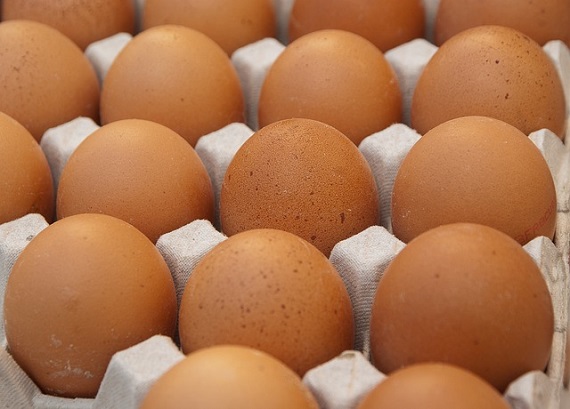


Australia's most comprehensive organic and natural directory
All About Egg Production

Eggs are nutrition powerhouses that provide us with high-quality protein, healthy fats, minerals and vitamins and they are affordable and delicious to cook and bake with. However, the living conditions, nutrition and health of the chickens affect the nutrient level of the eggs we buy. Most of us don’t own our own hens so we rely on grocery shops, farmer’s markets and local corner stores to provide us with eggs that we can trust but labels can be confusing.
Here are the 7 most common egg labels and what they mean.
Conventional Caged Eggs
Conventional caged eggs are the most common eggs found on the shelves of conventional supermarkets and the majority of the eggs for sale are caged eggs. They come from hens that are raised in over-crowded cages and are not allowed to roam outdoors. These hens are fed conventional grain-feed that may be GMO and is supplemented with minerals and vitamins. The feed may also be treated with hormones and antibiotics to prevent illness and encourage production.
Cage-Free Eggs
Cage-free eggs come from hens that are allowed to roam around within henhouses or covered chicken coops and are not kept in small cages. Unfortunately the hens are not required to have outdoor access, are given unrestricted antibiotics and are fed commercial chicken feed.
Free-Range Eggs
Eggs can be labelled “free-range” when they come from hens that are allowed to roam around outside for a certain amount of time during the day. They are not necessarily organic as the hens can be fed conventional grain feed and there are no restrictions on antibiotic use. However, the outdoor exposure allows them to supplement their diet with plants, insects and worms, and the fresh air and sunlight contribute to their health and happiness.
Organic eggs
Organic egg production involves feeding the hens organic chicken feed that is free from artificial chemicals, pesticides, antibiotics, hormones and GM ingredients. The treatment of the hens is humane and they can never be caged and must be given outdoor access where they can supplement their diet with plants and insects. Antibiotics can only be used in the case of illness and until the treatment ends the farm loses its organic status. Organic eggs have been found to be higher in nutrients than conventionally produced eggs.
Pastured Eggs
Pastured eggs come from hens that are allowed to spend the majority of their time roaming free in fields, being exposed to fresh air and sunlight, eating plants, worms and insects for the bulk of their diet and only being supplemented with some grain feed. Pastured eggs are the most humane and nutritious eggs as the hens eat their natural diet and are exposed to minimal stress.
Vegetarian Eggs
Eggs labelled “vegetarian” come from hens that are fed a diet that is strictly vegetarian. This means that these hens are caged and cannot be free-range as it would allow them to eat insects and worms that are not on their vegetarian diet. Most people think that vegetarian eggs are healthy and come from humanly raised chickens but often it is the opposite.
Omega-3 Eggs
The label “omega-3” on eggs does not refer to how the chickens were raised and treated, but only to the fact that these hens are fed on a diet that is rich in added omega-3 and vitamin E.
Find ethical companies that provide organic, free-range and pasture raised eggs here
Sources
https://www.organicfooddirectory.com.au/organic-food/meat-zzt-animal-products/organic-egg-production/
https://www.healthline.com/nutrition/pastured-vs-omega-3-vs-conventional-eggs#section6
https://delishably.com/dairy/Organic-Eggs-vs-Free-Range-and-Cage-Free-Alternatives








